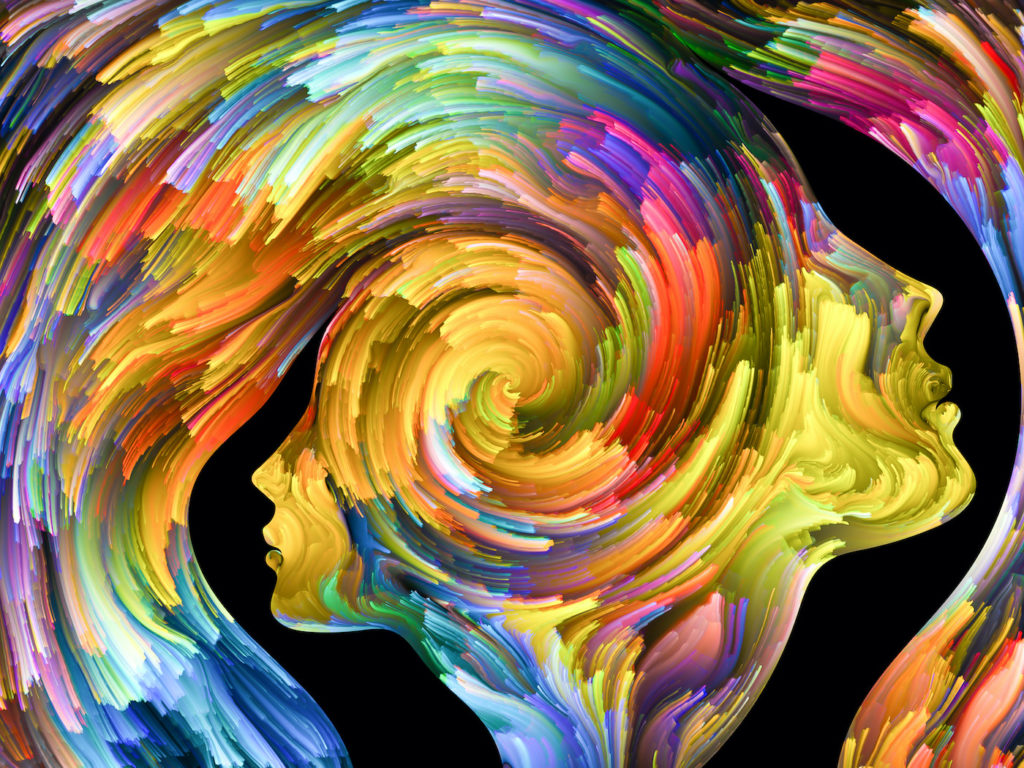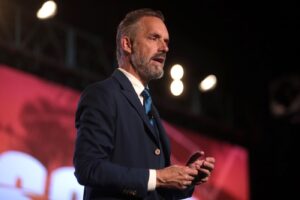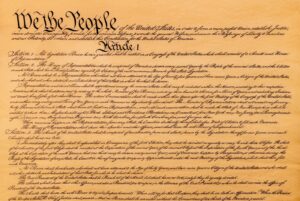I’ve spent most of my adult life studying and teaching philosophy, having never lost the sense that the examined life was worth living, and that it is incumbent on humans to reflect on and weigh their actions and commitments. If, however, the current reductionistic assumptions are true, and we are no more than wet robots, my life has been somewhat ridiculous.
If humans are simply a combination of hardware and software better explained by chemistry than theology, and if our values and mores are cultural memes tainted by unjust power dynamics, then the quest to become fully responsible agents is a fool’s errand. As Terry Eagleton notes, a flattened universe goes hand in hand with flattened humans. Postmodern people, unlike earlier nonbelievers, do not experience the loss of God “as a trauma, an affront, a source of anguish,” since they don’t “experience it at all.” There is no tragedy to this loss, since it was never felt as a loss. Even if the “death of God involves the death of Man,” this, too, is not experienced as loss, since the human is thought so flat as not to possess the “space” in which either God or a self could reside. Not only has the image of God disappeared, so also have those inner depths where a self might hide. Generations raised without God are, for Eagleton, generations for whom culture, psychology, literature, and morality are stuck in the shallows. We view “depth and interiority,” and the self linked to such depths, as belonging “to a clapped-out metaphysics” that we no longer know. It’s now so alien as not even to be knowingly rejected.
Moreover, if reductionism is true, the ancient idea that the soul and the city are analogues to the cosmos, and thus that we ought to live according to nature, is similarly defunct. Cosmos is a “supreme untruth,” to cite Nietzsche; removing God or the Logos from the world order while smuggling the same assumptions into our rationality, is still to refuse to see the real pattern of the world. A thoroughly clear view of reality would see things more starkly. War, again, has become the father of all.
Consequently, it’s hardly surprising to note our obsessions with power and struggle. Not only Foucault and Althusser (for the left), but also Bronze Age Pervert, Julius Evola, and Ernst Jünger on the metaphysics of pain and war (for the non-conservative variants on the “right”). Held in common, however, is an ersatz transcendence, the desperate attempt to replace the kingdom of God with the kingdom of Man, grace with power, and our supernatural vocation with politicized rationality—to immanentize the eschaton, in other words.
Start your day with Public Discourse
Sign up and get our daily essays sent straight to your inbox.Politics is not first; philosophy is prior, and even that is servant to theology. Reversing the order is a drastic mistake, albeit an all but inevitable error for those lost in chaos. When the universe is utterly immanent, when the human is reduced, when culture is simply entertainment, it is hardly surprising that politics will occupy the center of thought and imagination. Such a politics thinks too highly of itself. Not only does a politics of ultimacy attempt to govern the entirety or totality of human affairs, it also exhibits a finality or completeness in its judgments. If there is a transcendent reality beyond human control, politics isn’t total—doesn’t include everything—for politics is simply incompetent in some domains of human life. If there is a divine authority, the judgments of politics are not final, for they are subordinate to the judgments of God. In our own moment, politics seems all-encompassing, inserting its snout into what is properly private, personal, or associational, and political judgments seem to be of considerable importance, tantamount to the demanding claims of morality.
Non-totalizing politics keeps in its proper sphere, and does not interfere with religion, family, conscience, and associations. Furthermore, it is prudent, recognizing that while there are intrinsic moral wrongs, there are far fewer (if any) intrinsic political obligations and thus vast space for prudential disagreement. You might prefer policy A while I prefer policy B, and we both might have good reasons for our preferences; neither of us is a moral monster or outside the domain of acceptable society due to our diverging views.
Just now, however, politics seems to be the only game in town—everything is political!—and political views are absolutist, dogmatic, and accompanied by an aura of hyperventilating moralism. Somewhat counter-intuitively, the more we are lost in the chaos, with the human reduced to mere matter and chemicals, and where God is dead, the more fervent and demanding our politics becomes, even though reductionism lacks any capacity to ground or justify any moral or political norms. A thoroughgoing reductionism cannot in any way justify human dignity, or equality, or justice, for such things simply do not mean anything in a universe in which everything is merely matter in motion. As it turns out, the old fear that religion was a conversation-stopper and resulted in political dogmatism overlooked the more worrisome culprit: the (incoherent) dogmatism of immanentized secularism.
Politics oughtn’t be first, but it has become first, and it has become vicious as a result. Our politics is idolatrous; it claims too much both in scope and certainty. It’s also making our society chaotic, with everything from family reunions to school board meetings to sporting events overly fraught with political implications and danger. It feels as though no space remains for the pleasures that make life sweet, and that are, in the end, our own business. Consider how difficult it has become to have guests over for dinner—the very food is charged with political meaning, and someone will have a moral-political statement to make about it, one made with zealous intensity.
Politics-as-ultimate seems evident on both left and right. Obviously, there’s endless hectoring or lecturing in social settings, as everyone must share his or her expertise, but that’s more bad manners than a harm. More disturbing is the impulse, on both left and right, to want politics to be overly involved and ambitious, to want to use power to solve the human condition, to have the state push thick goals, to overcome the limits and burdens of very human challenges. (I cannot bring myself to sympathize with those conservatives who think parents should be compensated for caring for their own children, for instance. It’s real work, to be sure, but it’s entirely in the domain of your own agency, not the state’s.) It’s all destined to fail, because it’s simply beyond the competence of government, and it’s all too dangerous, with the state absorbing enormous swaths of what ought to be left for civic associations and families.
It sounds boring, I know, but a perfectly decent life can be lived in suburban America. Peter Augustine Lawler used to make this point, and when I was a young man, I thought his claim uninteresting and slightly insipid. Now I agree with him. Yes, suburbs can be kitschy, monotonous places lacking the excitement and culture of the cities or towns. Sure, but there is still no intrinsic reason why their residents cannot read Plato, enjoy the hammer dulcimer, observe their religious duties, listen to Bach, form friendships, brew beer, coach the softball team, start a business, or do any of those things that free people choose in living decent, prosperous, meaningful, morally responsible lives.
The point isn’t about suburbs. The point is that every human lives out the drama of existence in his or her way, and with great risk: they gain or lose heaven, embrace or reject love, bring a child into being or not, form friendships and romances or sink into loneliness, become sages or fools. Every life is a fascinating mystery of agency and conscience, virtue and vice, and that drama can be played out successfully even under the conditions of imperfection.
Even under the conditions of liberalism.
We don’t need politics to absorb all, and we would be well advised to keep the fully human things in their place of primacy, with politics confined within prudent limits and modest aims. If we forget or forgo the primacy of the person, choosing instead the story of power and chaos, it seems likely we’ll lose the cosmos of our own souls.













